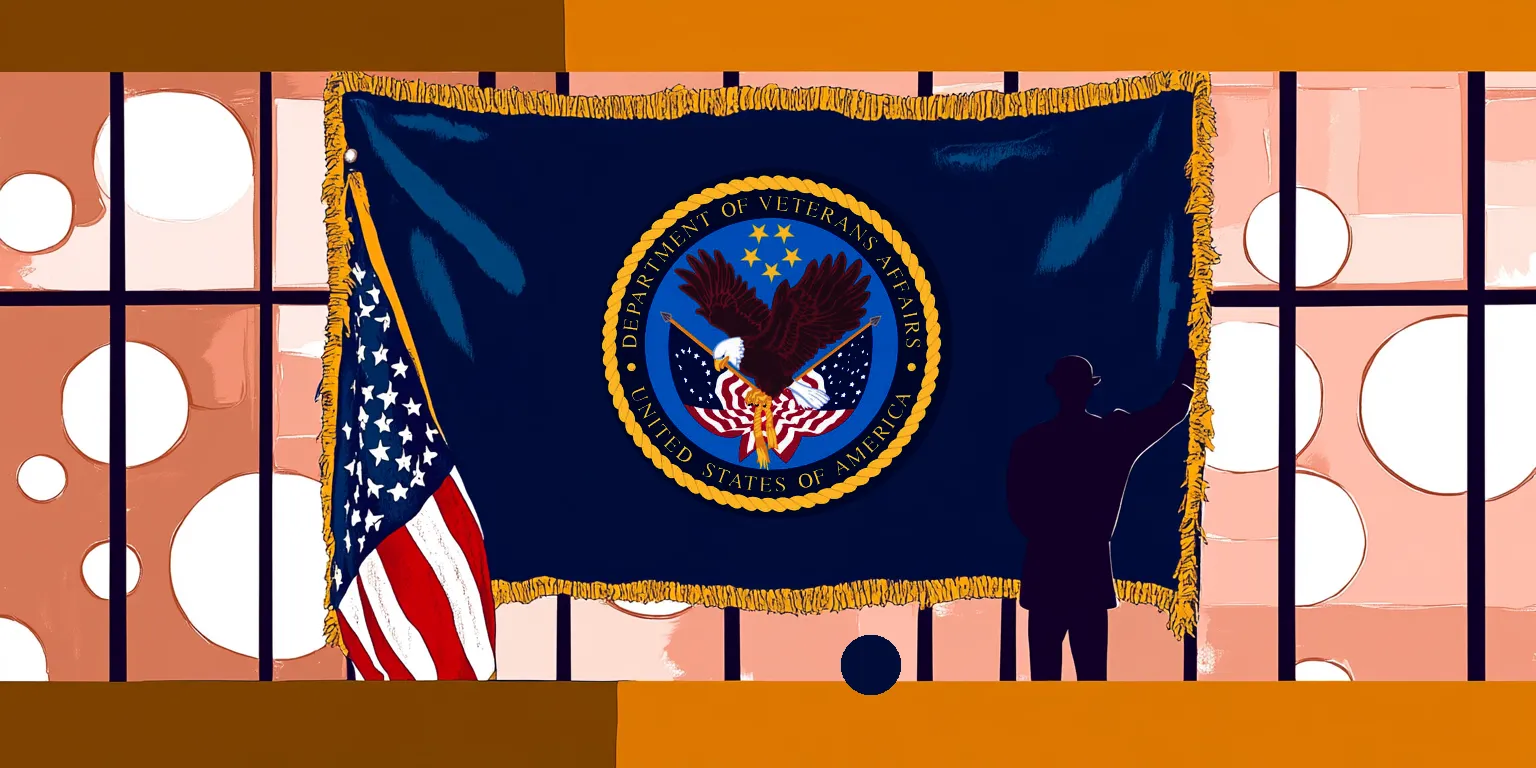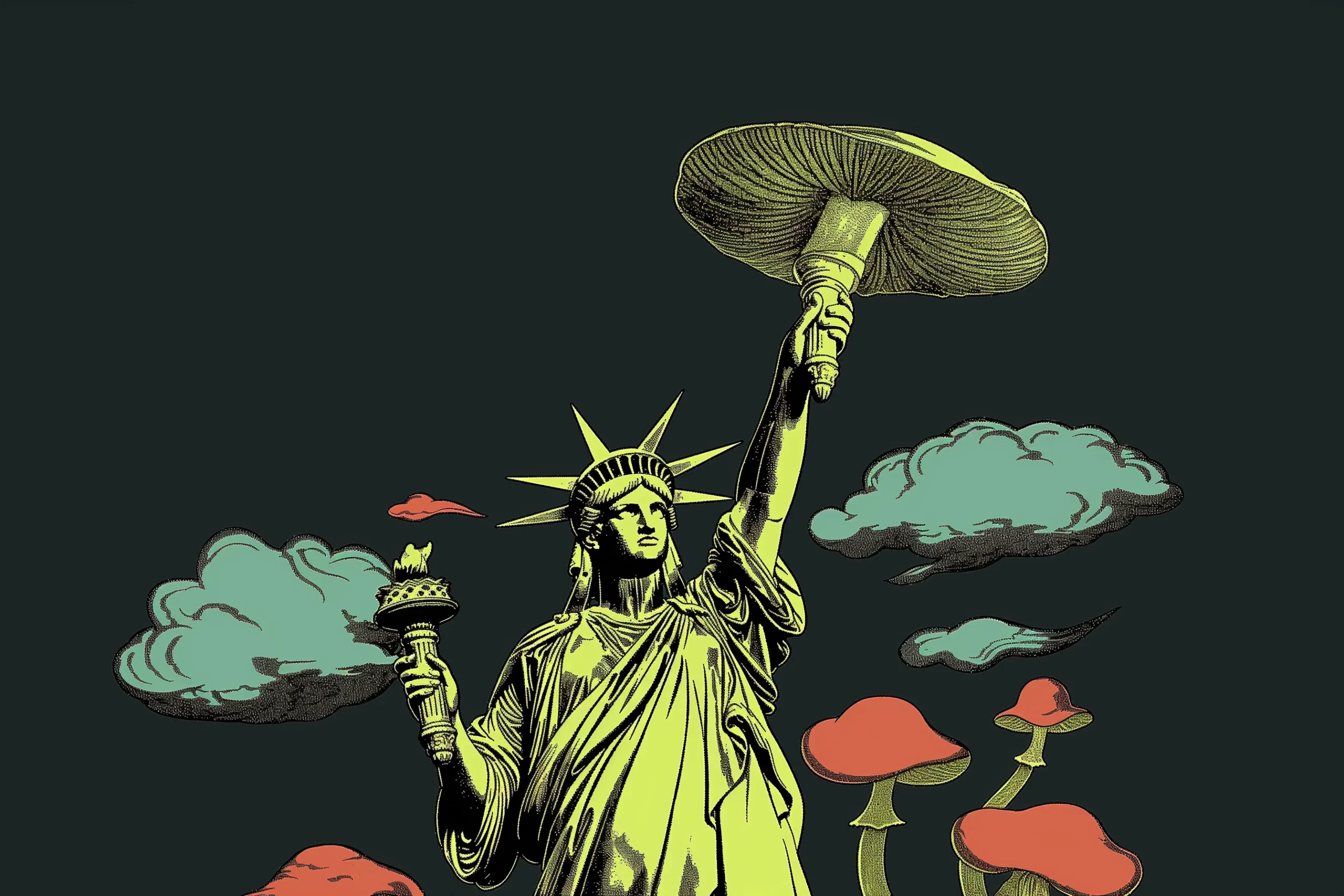In this week’s Psychedelic News Roundup, we examine a series of congressional and legal wins for the psychedelic industry and their impact on the future of the psychedelic renaissance. Other news includes one scientist’s VR-powered research and a Massachusetts town joining the movement.
Congress Advocates for Psychedelic Research in Military PTSD Treatment

As covered by The Intercept, in a significant policy shift, the United States Congress is poised to approve a provision within the National Defense Authorization Act of 2024 that will fund clinical trials using psychedelic substances for active-duty military personnel. This groundbreaking move aims to explore the effectiveness of MDMA, psilocybin, ibogaine, DMT, and other plant-based therapies, like ayahuasca, in treating post-traumatic stress disorder (PTSD) and traumatic brain injuries. This initiative reflects the growing body of research indicating the potential of psychedelics in treating mental health disorders, especially PTSD, with the FDA already recognizing MDMA and psilocybin as “breakthrough therapies.”
The proposed trials, driven by a collaborative effort between the Department of Defense and various research entities, could reshape the military’s approach to mental health, particularly PTSD—a condition that often leads to service disqualification and contributes to high suicide rates among military personnel. Advocates hope these trials will not only offer direct therapeutic benefits but also influence broader policy and societal attitudes towards PTSD treatment, potentially benefiting other high-stress professions like law enforcement and emergency medical services.
The inclusion of this provision marks a significant legislative milestone in the journey toward recognizing and legitimizing the therapeutic potential of psychedelics. Spearheaded by lawmakers like Rep. Morgan Luttrell and Rep. Dan Crenshaw and earlier championed by Rep. Alexandria Ocasio-Cortez and others, this effort reflects a growing bipartisan consensus on the need to explore innovative treatments for PTSD. The NDAA’s passage, eagerly awaited by advocates and veterans alike, represents a hopeful turn in the ongoing struggle to address the mental health challenges faced by those who have served in the military.(1)
Keep Up with Uncensored Psychedelic Trends
Join our newsletter at Psychedelics Uncensored.
We respect and protect your privacy. By subscribing your info will be subject to our privacy policy . Unsubscribe easily at any time
Ninth Circuit Court Challenges DEA’s Stance on Psilocybin

JDSUPRA covers a landmark decision issued by the Ninth Circuit Court of Appeals in Aggarwal v. DEA. The court has directed the U.S. Drug Enforcement Agency (DEA) to reconsider its refusal to reclassify psilocybin from a Schedule I to a Schedule II substance. The case originated from Dr. Sunil Aggarwal’s petition to legally administer psilocybin to terminally ill cancer patients, highlighting the potential medical benefits of the psychedelic compound found in magic mushrooms.
Dr. Aggarwal’s efforts to access psilocybin under the federal “right-to-try” laws were initially thwarted by the DEA’s rejection. The DEA’s classification system places substances in five schedules, with Schedule I reserved for drugs considered to have no accepted medical use and high abuse potential. This classification limits both research and clinical application. The DEA also denied Dr. Aggarwal’s subsequent request for a scheduling review, which failed to provide a thorough rationale or define the criteria for “accepted medical use,” leading to the Ninth Circuit’s intervention.
The Ninth Circuit’s decision marks a critical moment in the debate over psilocybin’s therapeutic potential. Although the court didn’t mandate a scheduling review by Health and Human Services (HHS) or the FDA, the DEA faces increased pressure to justify its position in light of emerging research supporting psilocybin’s medical benefits. This ruling could be a significant step towards reevaluating and potentially reclassifying psilocybin, potentially unlocking new avenues for research and treatment.(2)
DMT and Virtual Reality: A New Frontier in Mental Health Therapy

Coming to us from The Daily Beast, an innovative study led by Zeus Tipado, a doctoral candidate at the University of Maastricht, Netherlands, explores the therapeutic potentials of combining DMT, a potent psychedelic, with virtual reality (VR). This research focuses on understanding perceptual changes during VR experiences enhanced by DMT, aiming to unlock new dimensions in mental health treatment. DMT, known for its intense, short-lived hallucinogenic effects, is being examined for its potential to induce profound cognitive and emotional experiences, which are often challenging to articulate or retain.
The study employs a functional near-infrared spectroscopy (fNIRS) scanner, which allows for greater movement and captures the brain’s response to visual stimuli, unlike more invasive brain imaging methods. This approach could revolutionize our understanding of the psychedelic experience, potentially enabling the replication or analysis of these experiences for therapeutic purposes. Tipado’s research is particularly significant in its effort to demystify the subjective nature of psychedelic experiences, opening avenues for more profound comprehension and potential applications in treating complex mental health issues like treatment-resistant depression and anxiety.

The integration of VR and psychedelics holds immense promise for mental health therapy. VR provides enriched settings that can significantly influence a person’s mindset during a psychedelic experience, potentially leading to more positive outcomes. This combination of technologies and substances might not only advance our understanding of consciousness and psychedelic experiences but could also play a crucial role in addressing challenging mental health conditions, offering a safer, controlled environment for therapeutic hallucinations and introspection.(3)
Keep Up with Psychedelic Trends
Get uncensored psychedelic news, events, and updates. Join Psychedelics Uncensored!
We respect and protect your privacy. By subscribing your info will be subject to our privacy policy . Unsubscribe easily at any time
Provincetown Joins Massachusetts Communities in Psychedelic Decriminalization Effort

First run by WBUR, Provincetown has become the latest Massachusetts town to take steps towards decriminalizing psychedelic plants and fungi, such as psilocybin mushrooms and ayahuasca. This week, the Provincetown Select Board voted to instruct police officers to deprioritize cases involving these substances, aligning with a growing movement across the state. The resolution also urges the Cape and Islands District Attorney to stop prosecuting individuals for possessing, cultivating, or distributing these psychedelic plants.
Local support for the resolution is partly driven by the belief that psychedelics can aid in treating addiction, mental health issues, and cluster headaches, among other medical conditions. Provincetown joins other Massachusetts communities like Somerville, Cambridge, and Northampton in adopting such measures, backed by the advocacy group Bay Staters for Natural Medicine.
This local push comes amidst a broader debate on a state-wide initiative to decriminalize psychedelic plants. Supporters advocate for a model where these substances are decriminalized, allowing residents to grow and share their own supplies. This approach contrasts with a more regulated framework proposed in a ballot initiative by the D.C.-based group New Approach. Provincetown’s decision to prioritize medical benefits over recreational use highlights the complex considerations in the evolving discourse on psychedelic therapy and decriminalization.(4)
California’s Psychedelic Reform at a Turning Point

As reported by Marijuana Moment, during a recent virtual panel, California State Senator Scott Wiener expressed optimism about a critical turning point in psychedelic reform. Drawing parallels with the evolution of public opinion on marijuana legalization, Wiener noted growing bipartisan support and awareness of the therapeutic potential of substances like psilocybin. This shift in perspective comes as Wiener plans to introduce a new bipartisan bill in 2024, focusing on the therapeutic uses of psychedelics, following Governor Gavin Newsom’s veto of a broader legalization bill.
Wiener’s proposed legislation, set to be developed with Assembly member Marie Waldron, aims to concentrate on the therapeutic applications of psychedelics rather than broad decriminalization. This approach aligns with Newsom’s stance, which remains open to future discussions on decriminalization within a well-defined framework. The senator’s strategy reflects a pragmatic approach to advancing psychedelic therapy, acknowledging the political reality while striving to provide relief for Californians suffering from mental health crises.
The move towards therapeutic-focused psychedelic legislation in California highlights a growing trend in drug policy reform. While local jurisdictions like Eureka have already adopted decriminalization policies, Wiener’s efforts at the state level indicate a more cautious yet progressive approach. The senator’s initiative, coupled with ongoing local reforms and the potential for new ballot initiatives, underscores a dynamic landscape in California’s drug policy, moving steadily towards recognizing and harnessing the therapeutic benefits of psychedelics.(5)
Sources

1. Thakker, P. (2023, December 12). Congress Is Pushing Revolutionary Research on Psychedelic Treatments for the Military. The Intercept. https://theintercept.com/2023/12/12/psychedelic-research-congress-ptsd-veterans/
2. A Potential Breakthrough for Psychedelic Treatments: Ninth Circuit Court Ruling on Psilocybin Rescheduling. (n.d.). JD Supra. Retrieved December 14, 2023, from https://www.jdsupra.com/legalnews/a-potential-breakthrough-for-7865133/
3. Curtis, J. G. (2023, December 11). This Scientist Wants You to Do Psychedelics in Virtual Reality. The Daily Beast. https://www.thedailybeast.com/why-zeus-tipado-wants-you-to-do-dmt-in-virtual-reality
4. Provincetown moves to decriminalize psychedelics for adults. (2023, December 14). Www.wbur.org. https://www.wbur.org/news/2023/12/14/provincetown-decriminalize-psychedelics
5. Jaeger, K. (2023, December 14). California Senator Says State Is At Psychedelics “Inflection Point” As He Plans Dialed-Back, Therapeutic-Focused Bill. Marijuana Moment. https://www.marijuanamoment.net/california-senator-says-state-is-at-psychedelics-inflection-point-as-he-plans-dialed-back-therapeutic-focused-bill/
This material is not intended as a replacement or substitute for any legal or medical advice. Always consult a medical professional about your health needs. Psychedelics are widely illegal in the United States, and readers should always be informed about local, state, and federal regulations regarding psychedelics or other drugs.
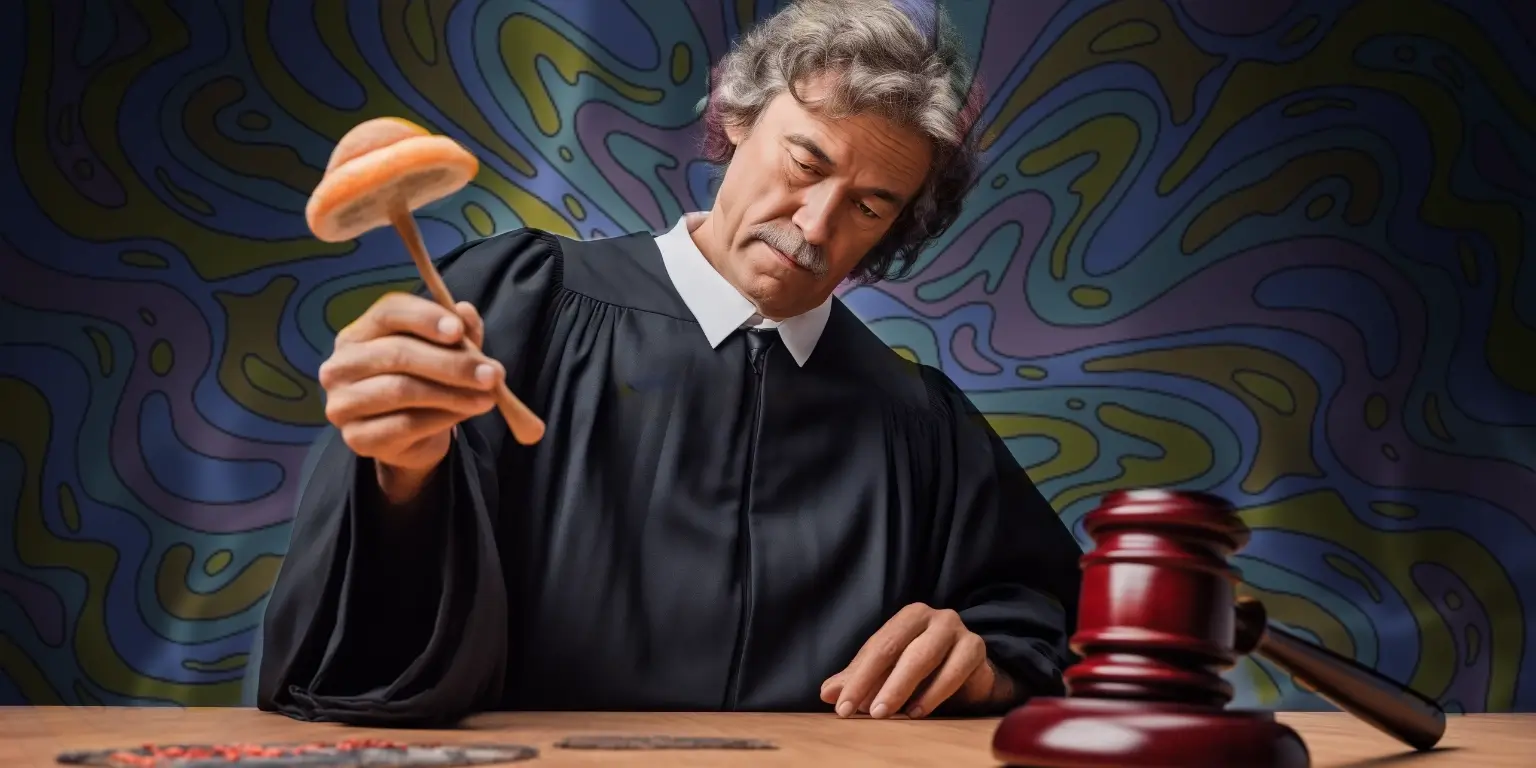
 David Connell
David Connell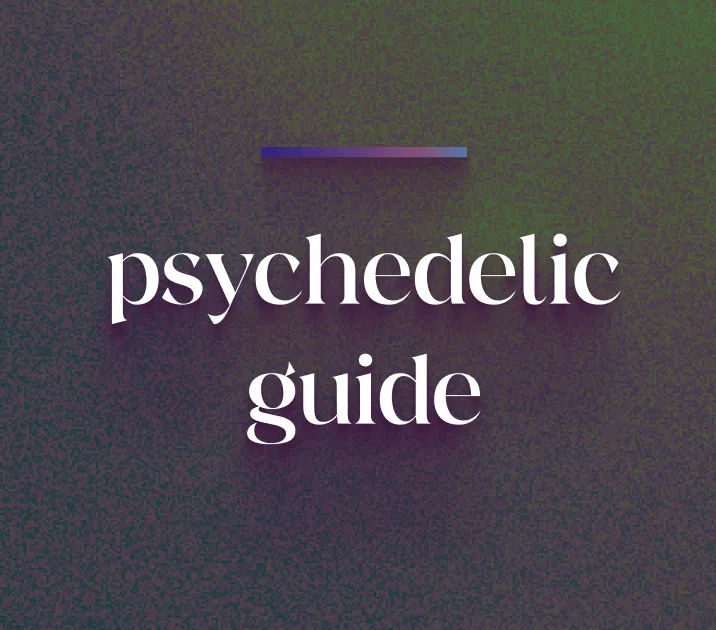
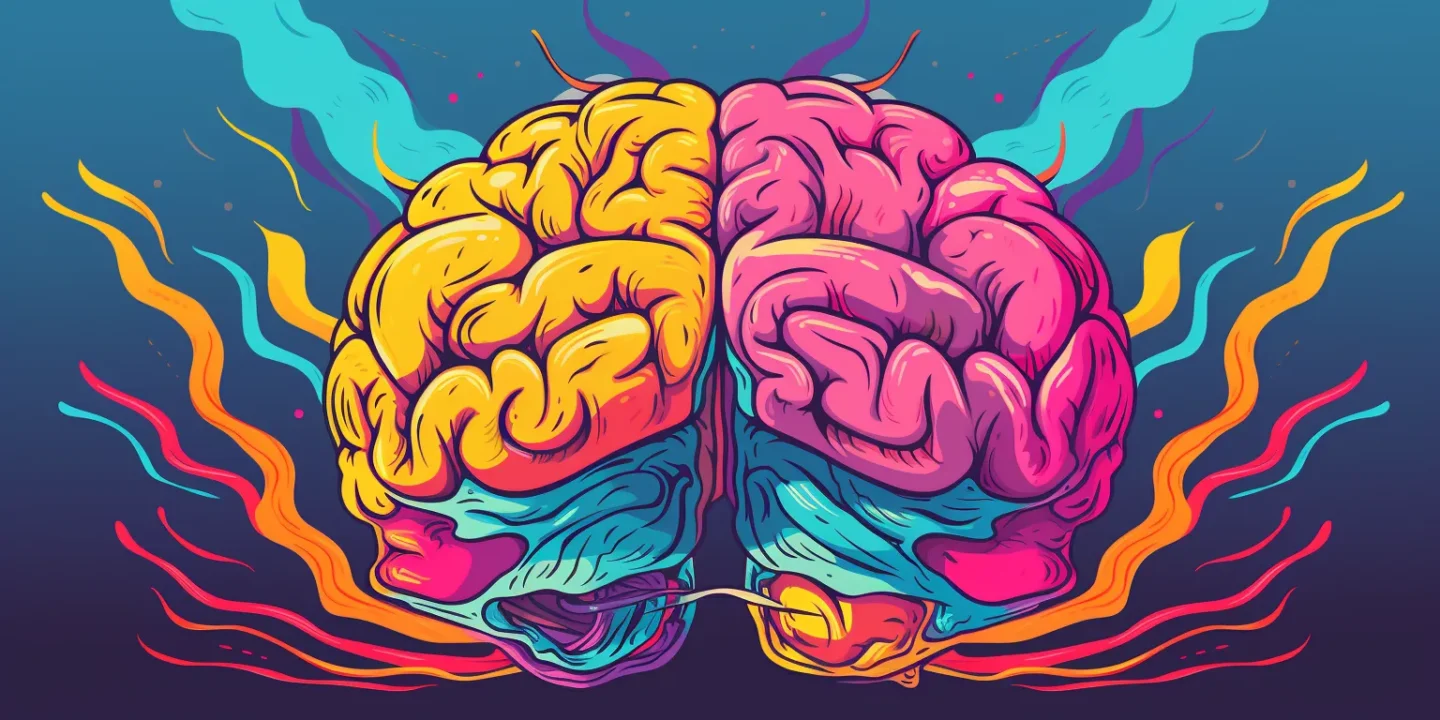

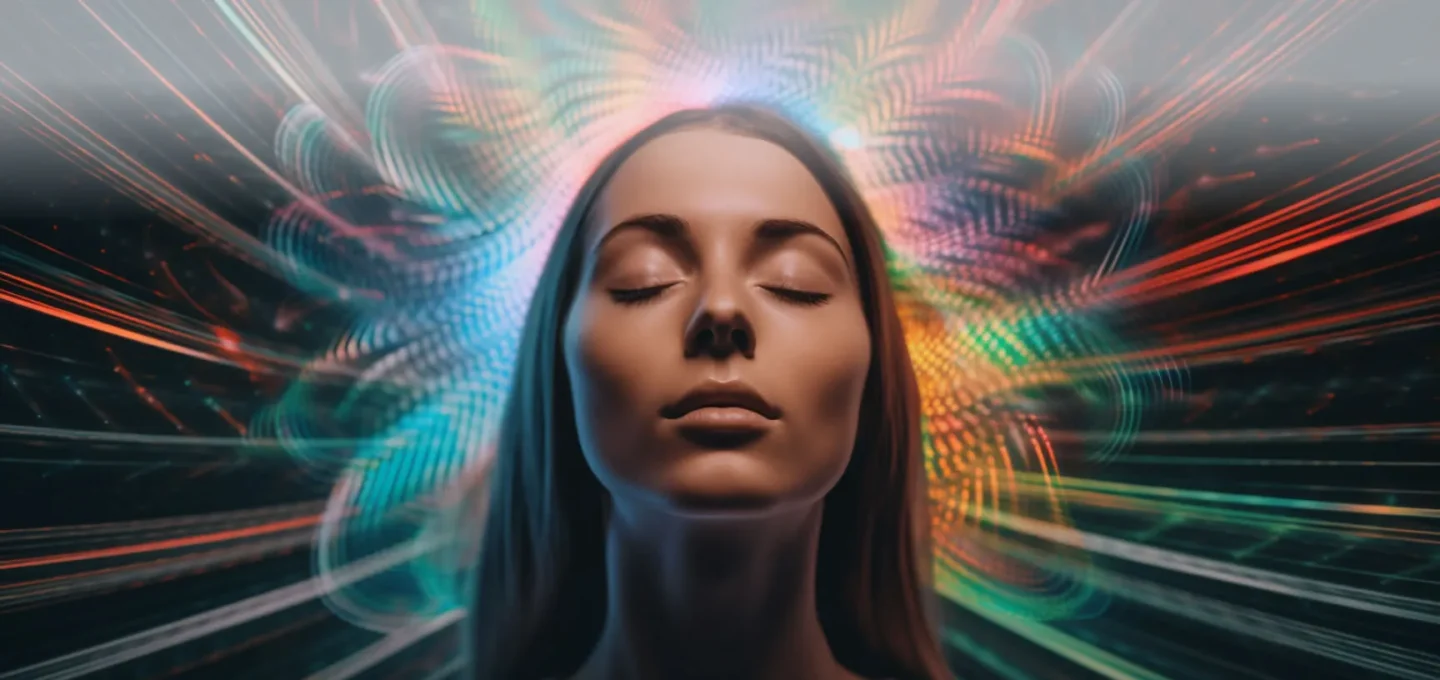



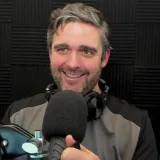 Ross Dillon
Ross Dillon 